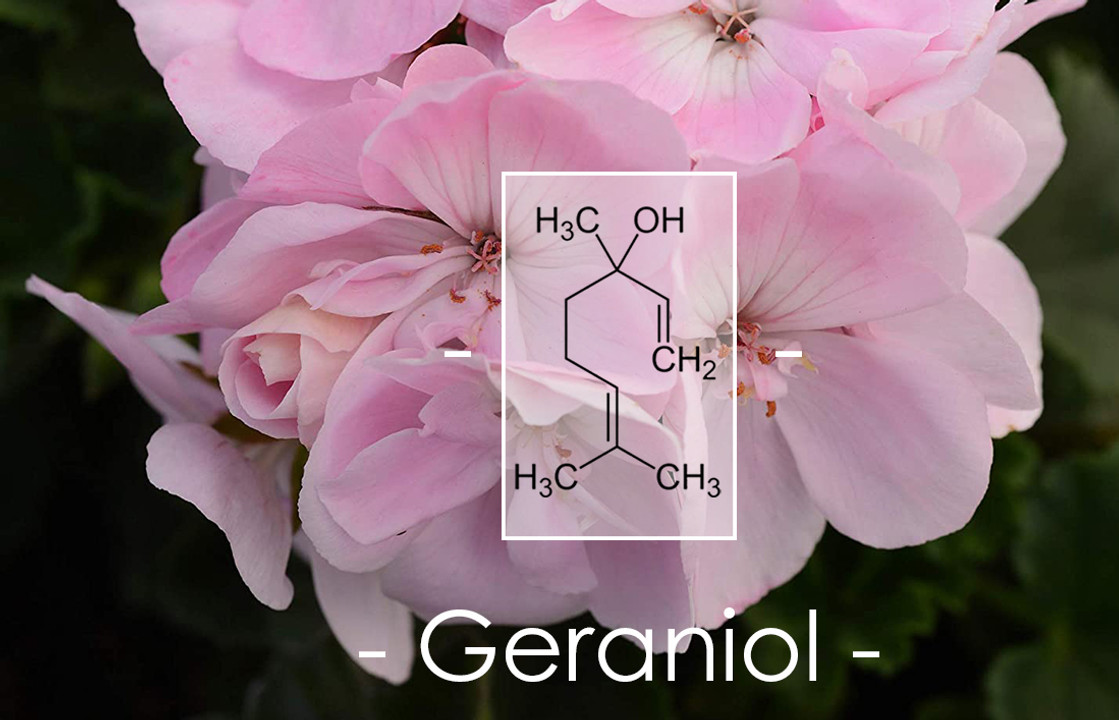Terpene Tuesday : Geraniol
Geraniol is a pretty interesting terpene. One of the more common terpenes appearing in many fruits, vegetables and flowers, it is the primary component of rose, palmerosa, citronella, and obviously geranium oil. Ironically though, when identifying the smell, it’s more akin to what we know as the scent of roses. Honeybees naturally make this terpene to mark the entrance to their hive and it is the primary way flowers attract them for pollination. For this reason, geraniol plays a key roll in the worlds’ food supply.
We’ve all had experience with geraniol, especially if we have a sweet tooth or use a lot of scented body products. It’s used heavily as a flavoring agent, especially in fruit flavored candies and medicines and in desserts requiring a floral touch. This floral characteristic lends geraniol to often be used in perfumes and beauty products as well. This terpene is also important in the creation of others. Without geraniol, neither myrcene or ocimene would be able to be synthesized.
Geraniol has been found to have anti-inflammatory, anti-cancer, antibacterial and anti fungal properties. In studies, its antibacterial properties were found to be only second to that of linalool and tied its anti fungal abilities squarely with citral. It’s also showing promise in treating inflammation and healing of traumatic injuries as well as the shrinking of tumors.
Geraniol while enticing to honeybees, is a deterrent for other insects. It is used very frequently in bug sprays and repellents, especially since it has a very low toxicity to humans as well as a pleasing scent people like. However, it has also been cited as a leading cause for contact dermatitis, and is commonly used in allergy test panels. On the contrary, geraniol candles are five times more effective than citronella and two times more effective than lanilool at repelling bugs.
All in all, geraniol is yet again another terpene showing much promise but still lacks the science to back up what man has known innately for generations.
https://en.wikipedia.org/wiki/Geraniol
https://pubchem.ncbi.nlm.nih.gov/compound/Geraniol
https://abstraxtech.com/blogs/learn/what-is-geraniol-uses-benefits
Advice & articles
-
Embracing Fall: Harvest Time, Festivals, and the Benefits of Hemp and THCA
Oct 6th 2025As the leaves turn vibrant shades of orange and gold, and the air becomes crisp, fall invites us to
-
Summer Cannabis Vibes
Jul 21st 2025Chill Vibes Only: How Smoking Cannabis Can Help You Relax This Summer There’s something magical abou
-
Veterans and Holistic Healing
May 31st 2024Military and wellness are two concepts that may seem contradictory at first glance, but they are int
- Read more articles




